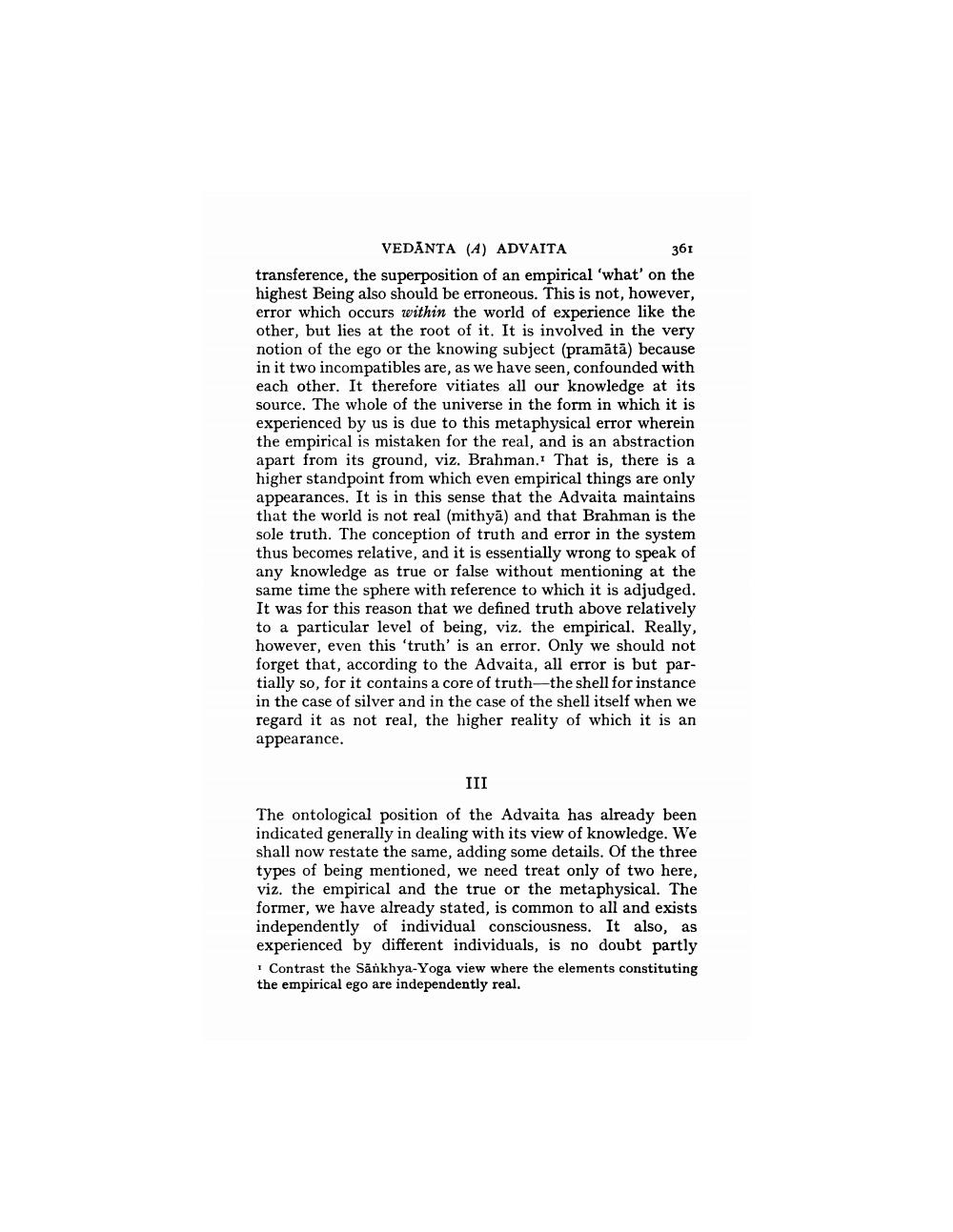________________
VEDĀNTA (A) ADVAITA
361 transference, the superposition of an empirical 'what' on the highest Being also should be erroneous. This is not, however, error which occurs within the world of experience like the other, but lies at the root of it. It is involved in the very notion of the ego or the knowing subject (pramātā) because in it two incompatibles are, as we have seen. confounded with each other. It therefore vitiates all our knowledge at its source. The whole of the universe in the form in which it is experienced by us is due to this metaphysical error wherein the empirical is mistaken for the real, and is an abstraction apart from its ground, viz. Brahman. That is, there is a higher standpoint from which even empirical things are only appearances. It is in this sense that the Advaita maintains that the world is not real (mithyā) and that Brahman is the sole truth. The conception of truth and error in the system thus becomes relative, and it is essentially wrong to speak of any knowledge as true or false without mentioning at the same time the sphere with reference to which it is adjudged. It was for this reason that we defined truth above relatively to a particular level of being, viz. the empirical. Really, however, even this 'truth' is an error. Only we should not forget that, according to the Advaita, all error is but partially so, for it contains a core of truth-the shell for instance in the case of silver and in the case of the shell itself when we regard it as not real, the higher reality of which it is an appearance.
III
The ontological position of the Advaita has already been indicated generally in dealing with its view of knowledge. We shall now restate the same, adding some details. Of the three types of being mentioned, we need treat only of two here, viz. the empirical and the true or the metaphysical. The former, we have already stated, is common to all and exists independently of individual consciousness. It also, as experienced by different individuals, is no doubt partly
Contrast the Sankhya-Yoga view where the elements constituting the empirical ego are independently real.




